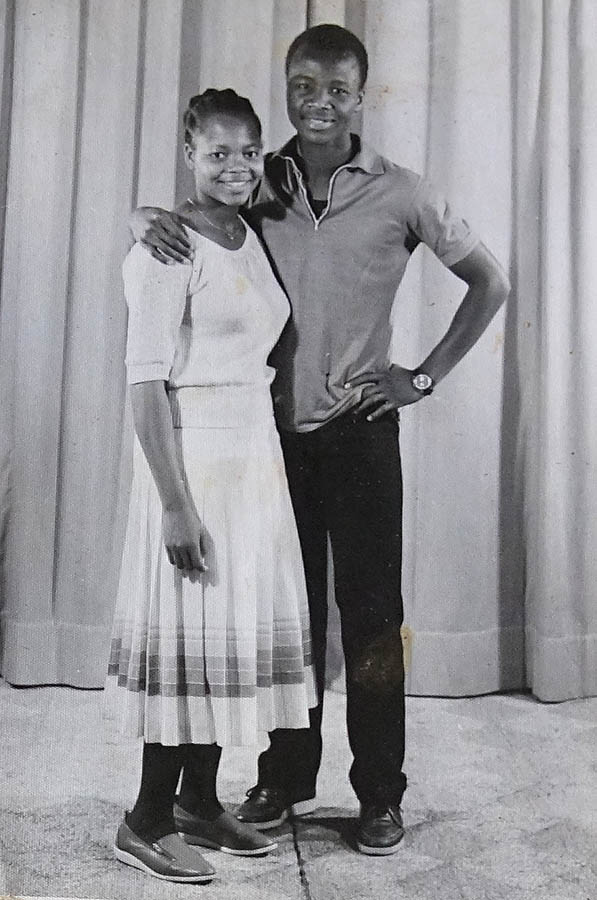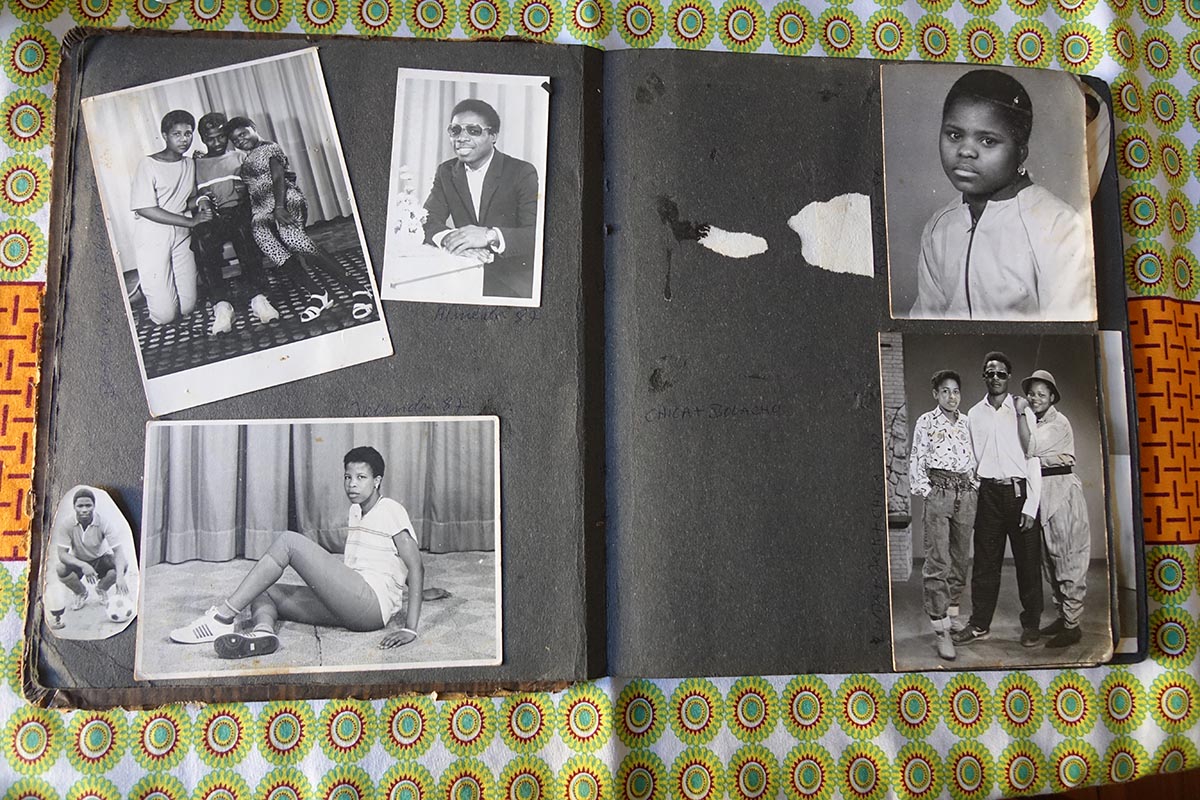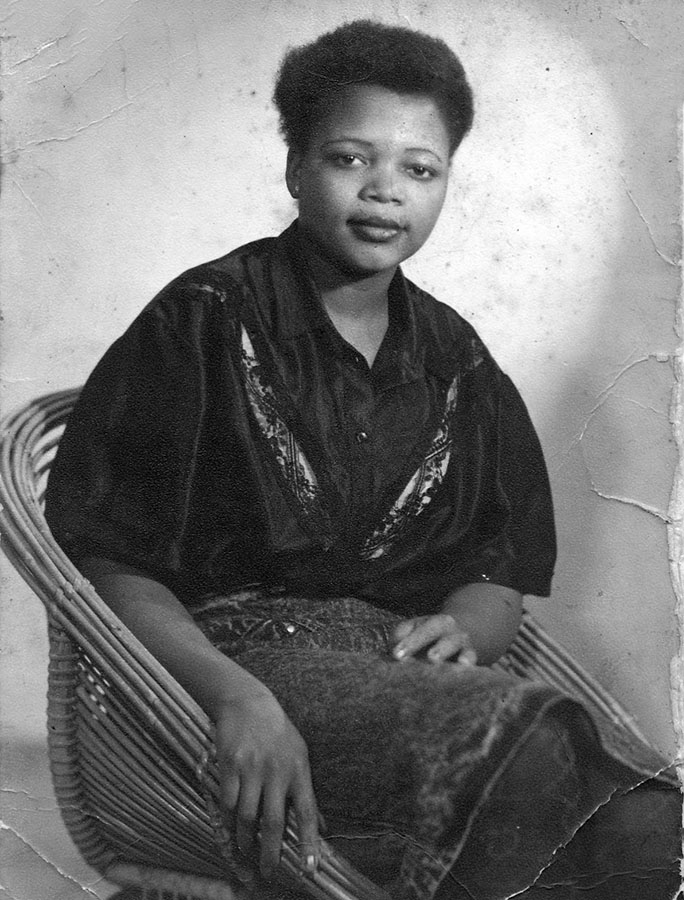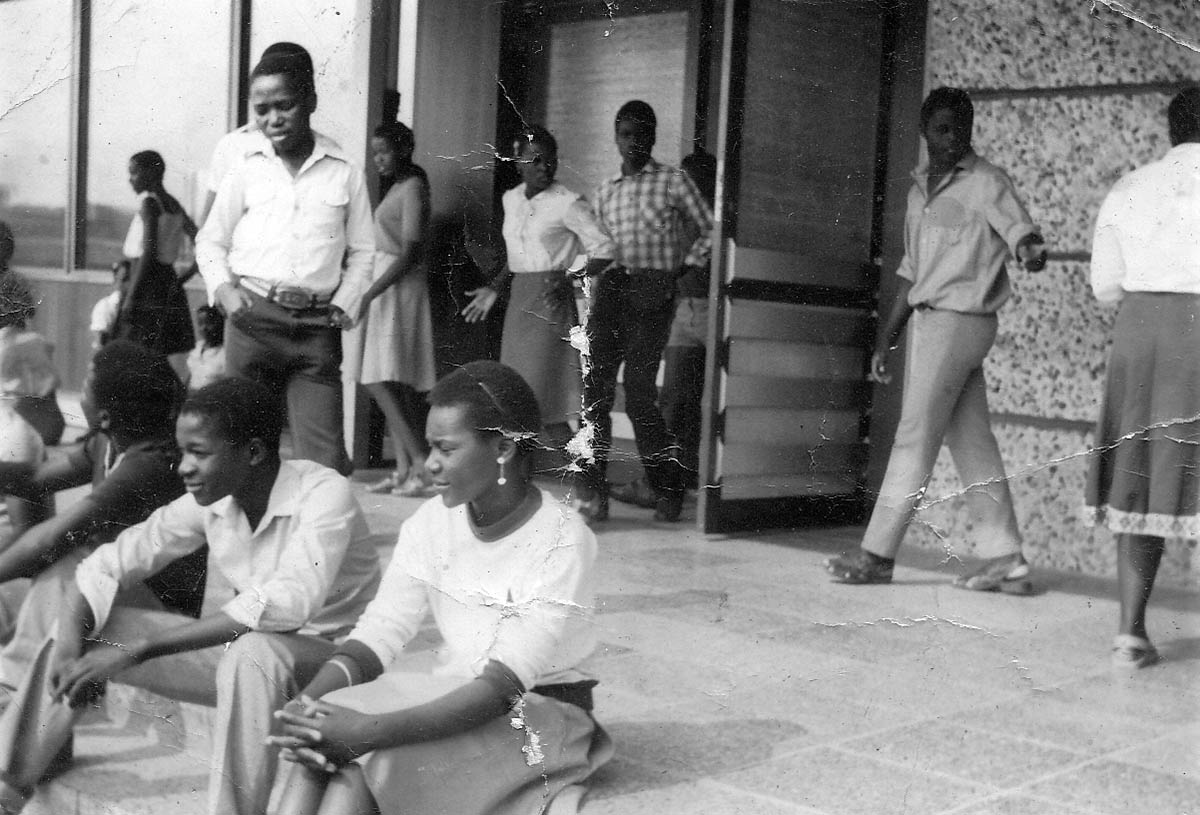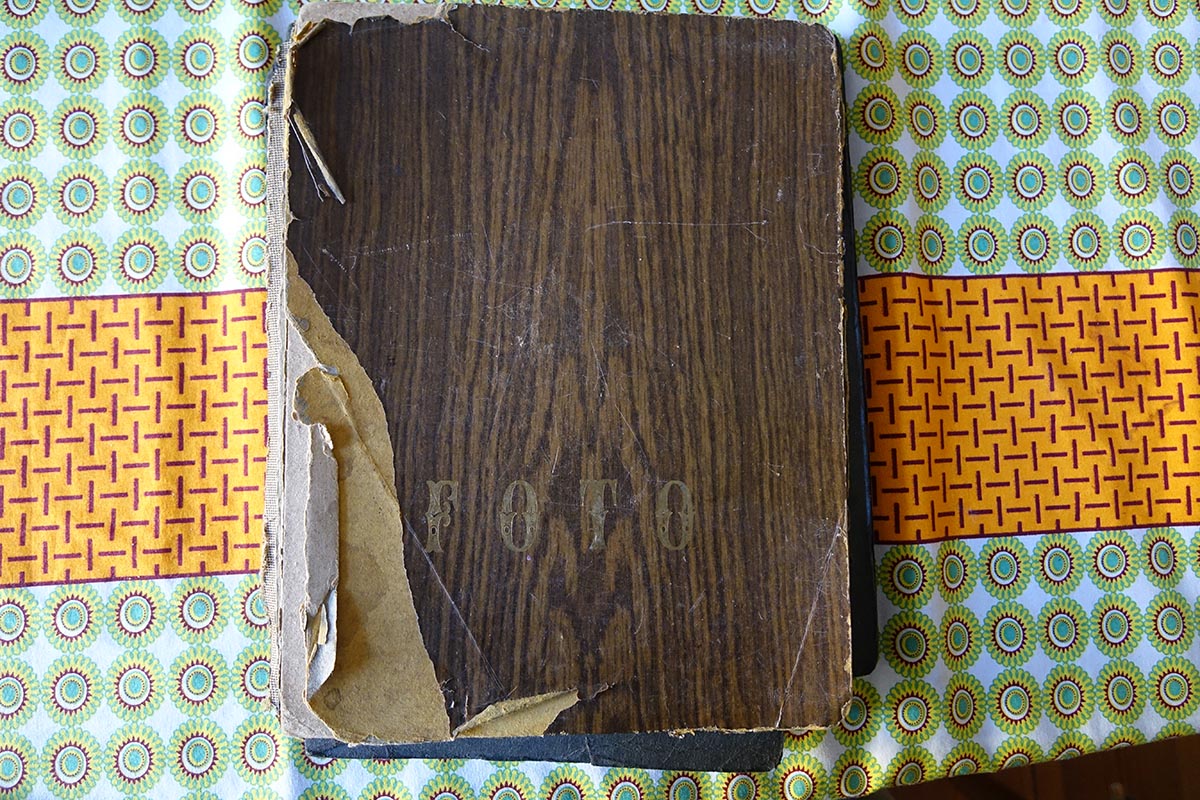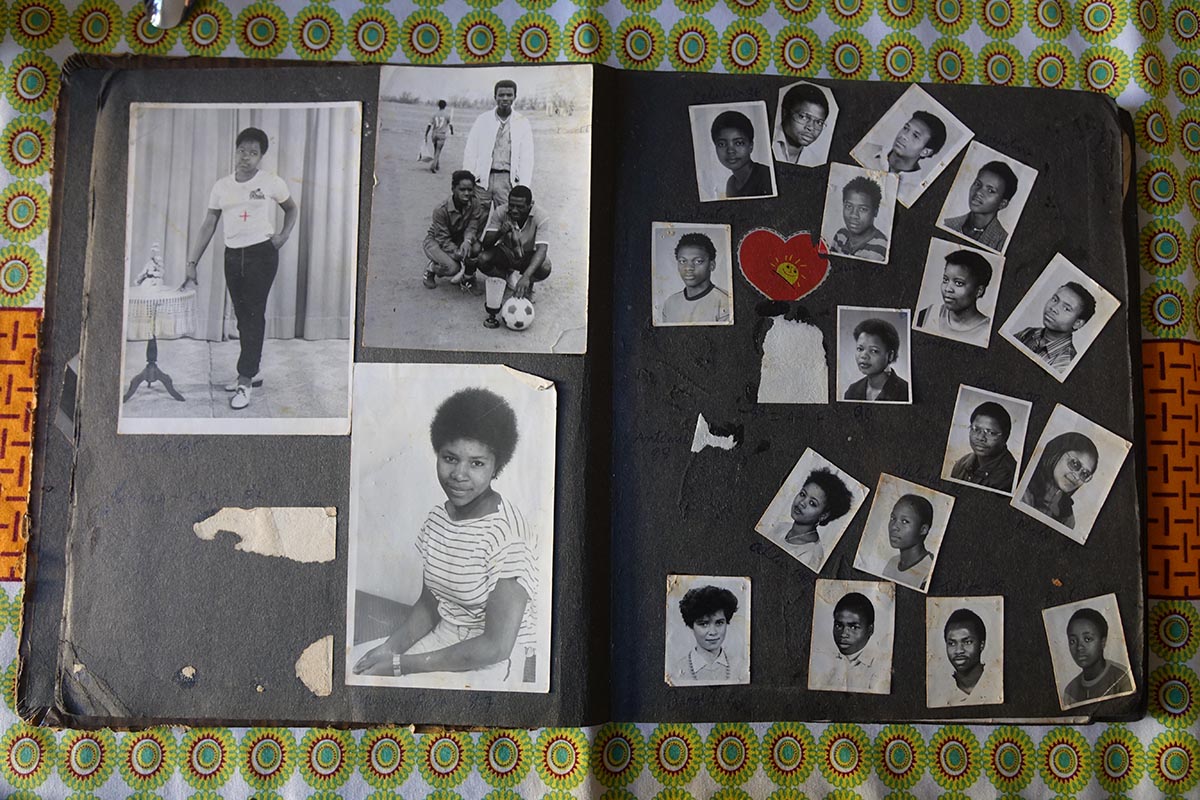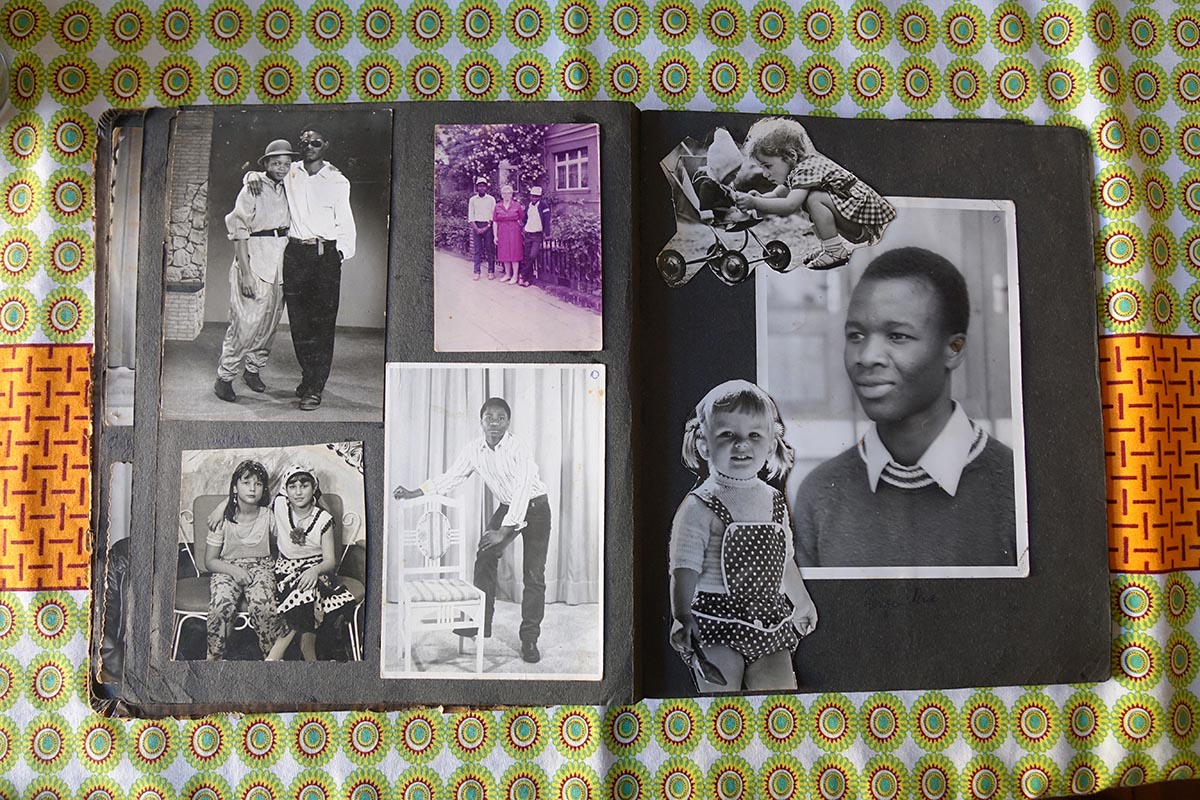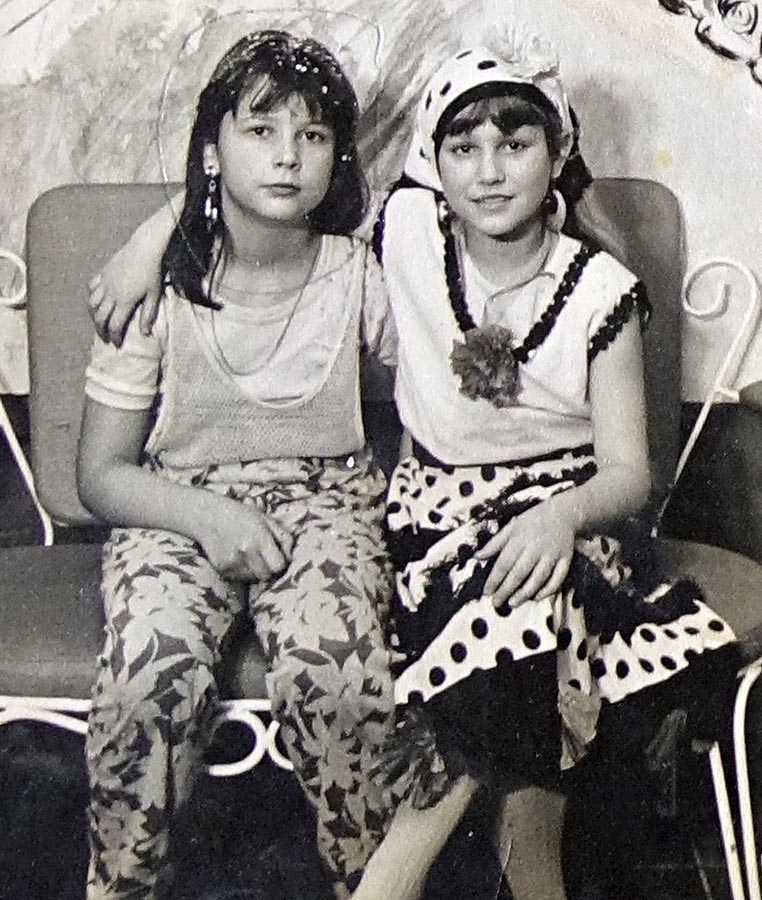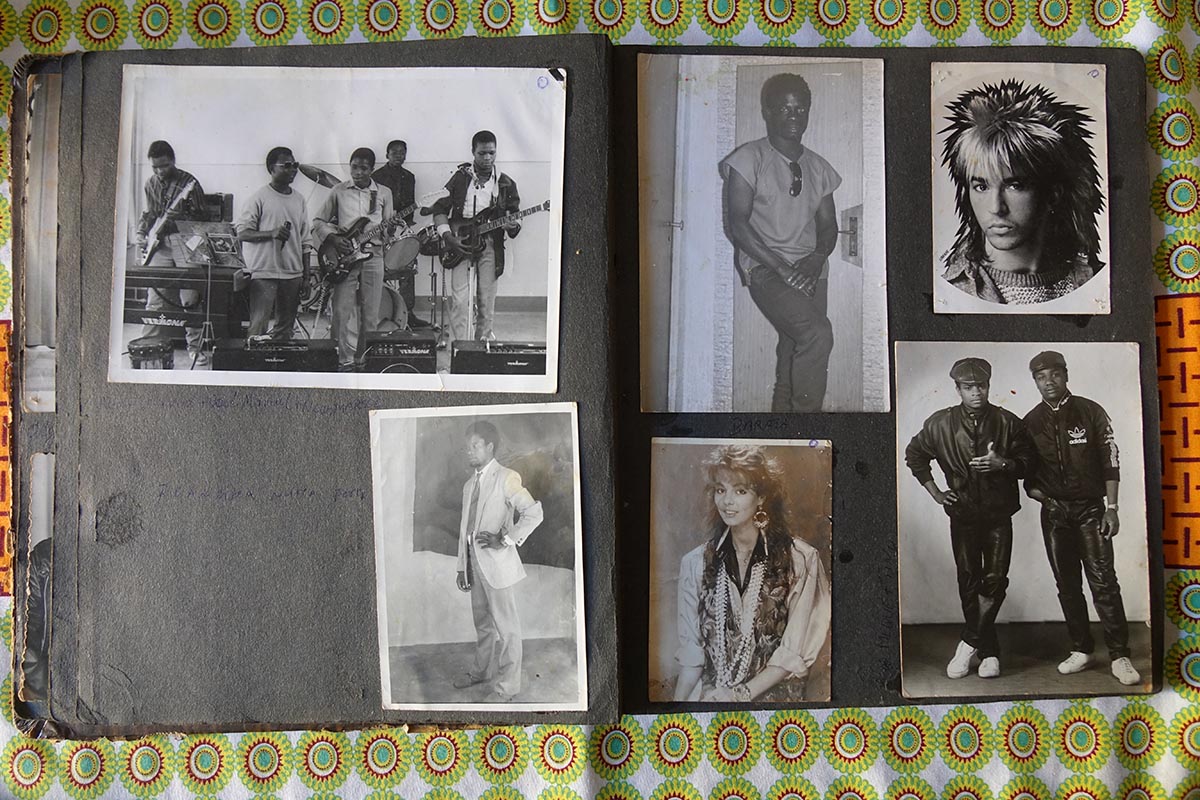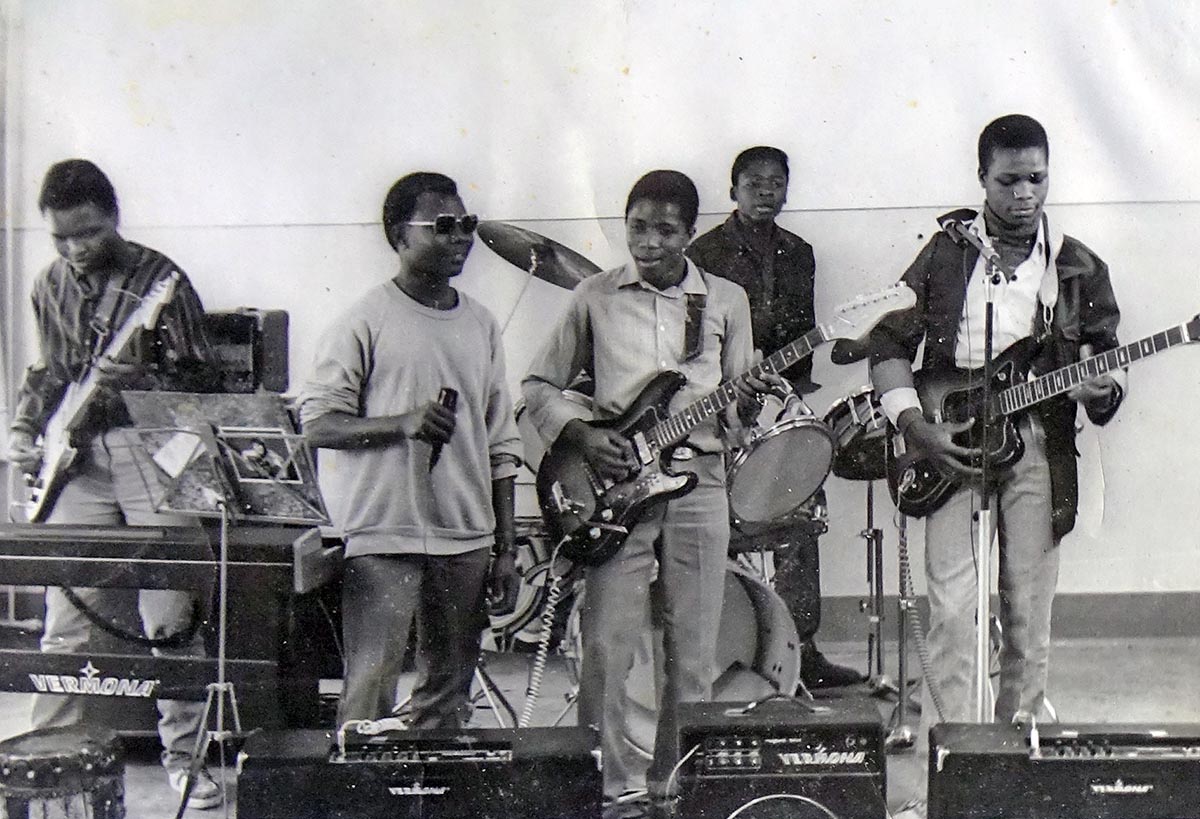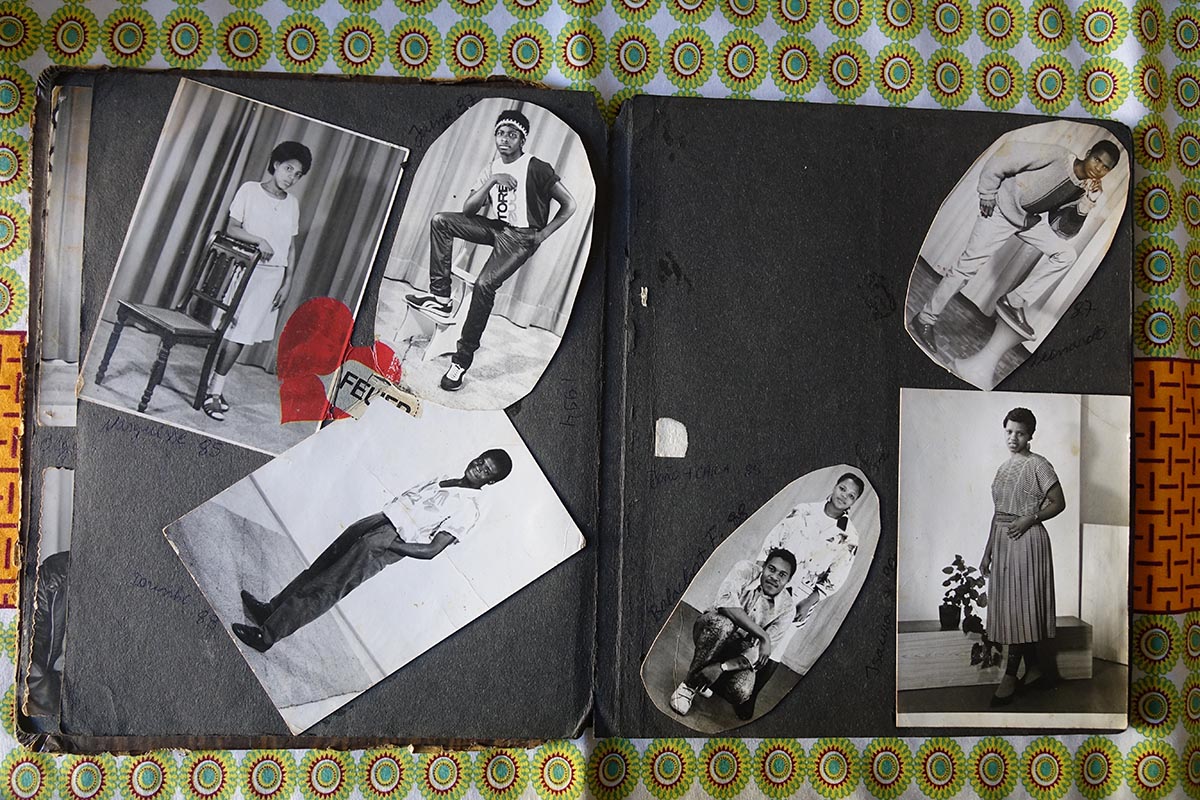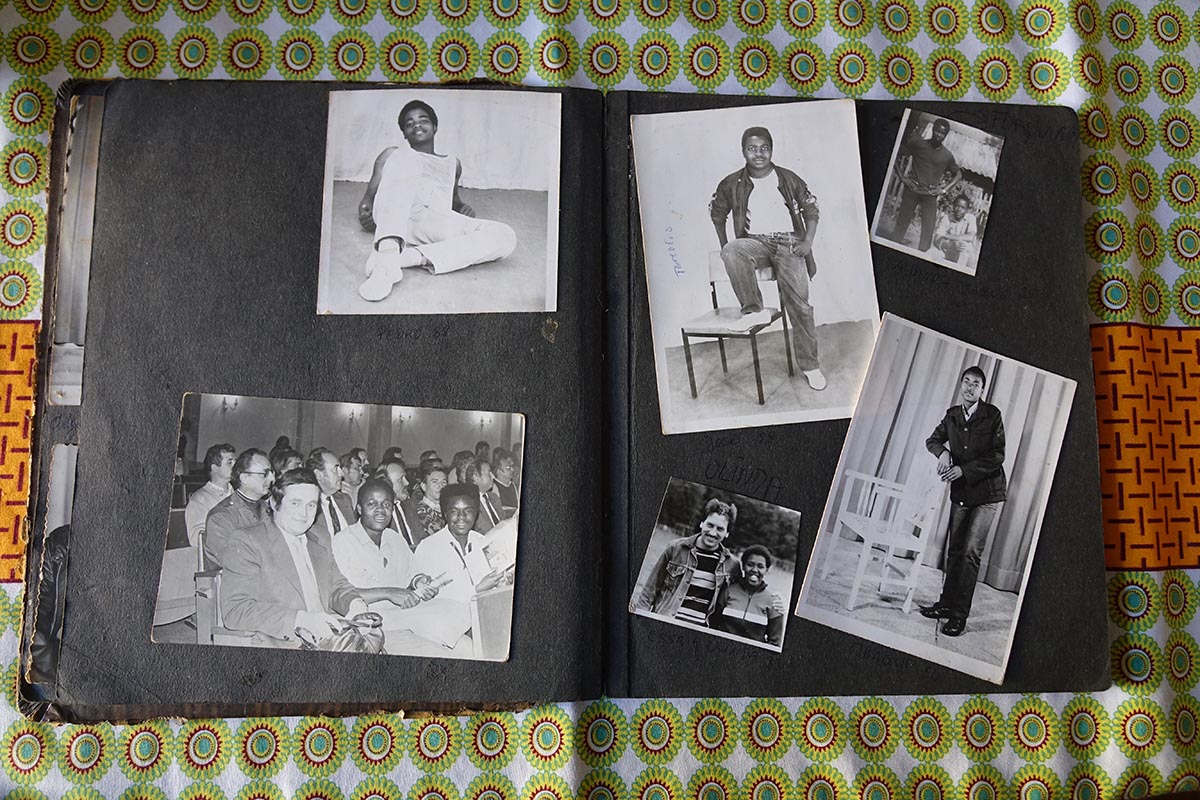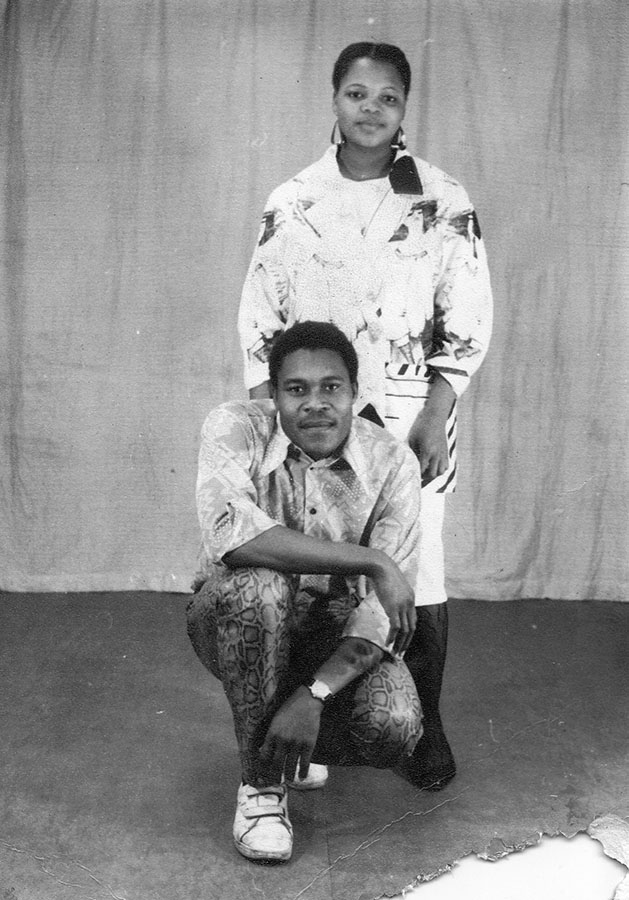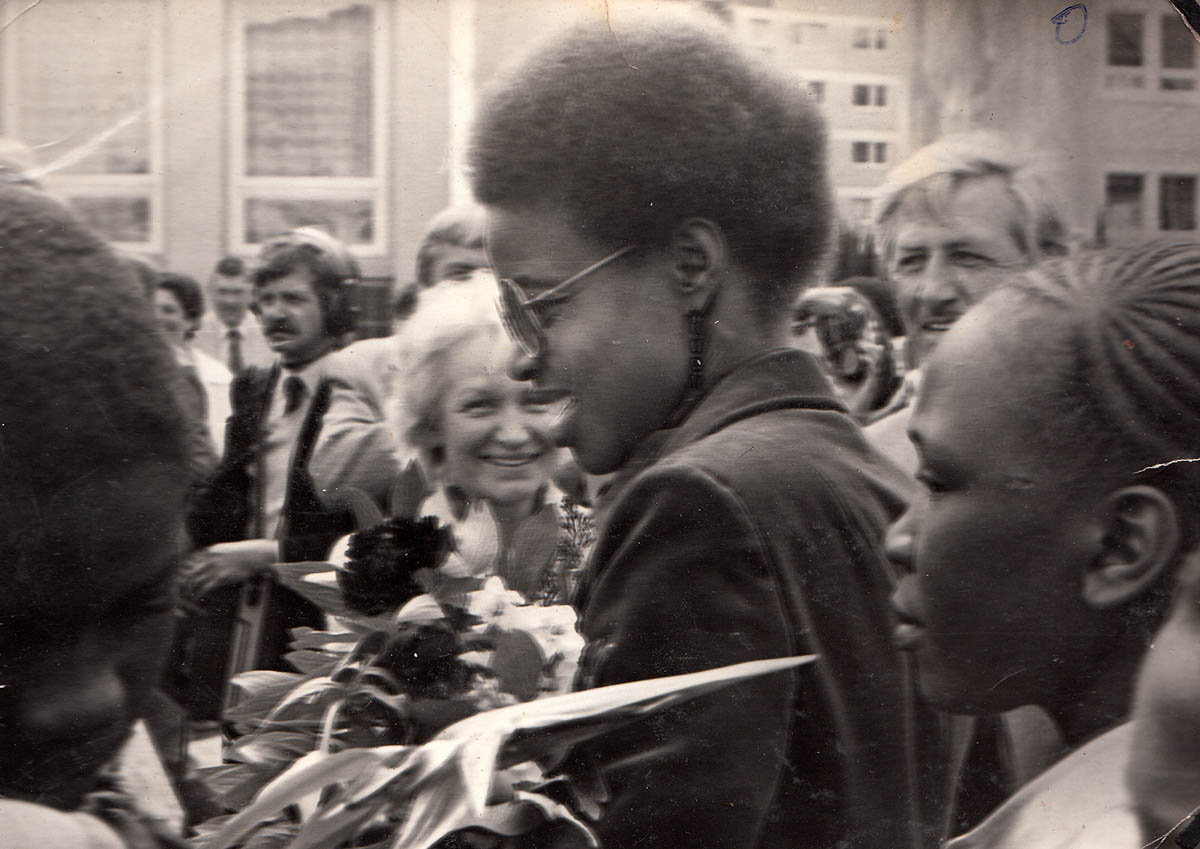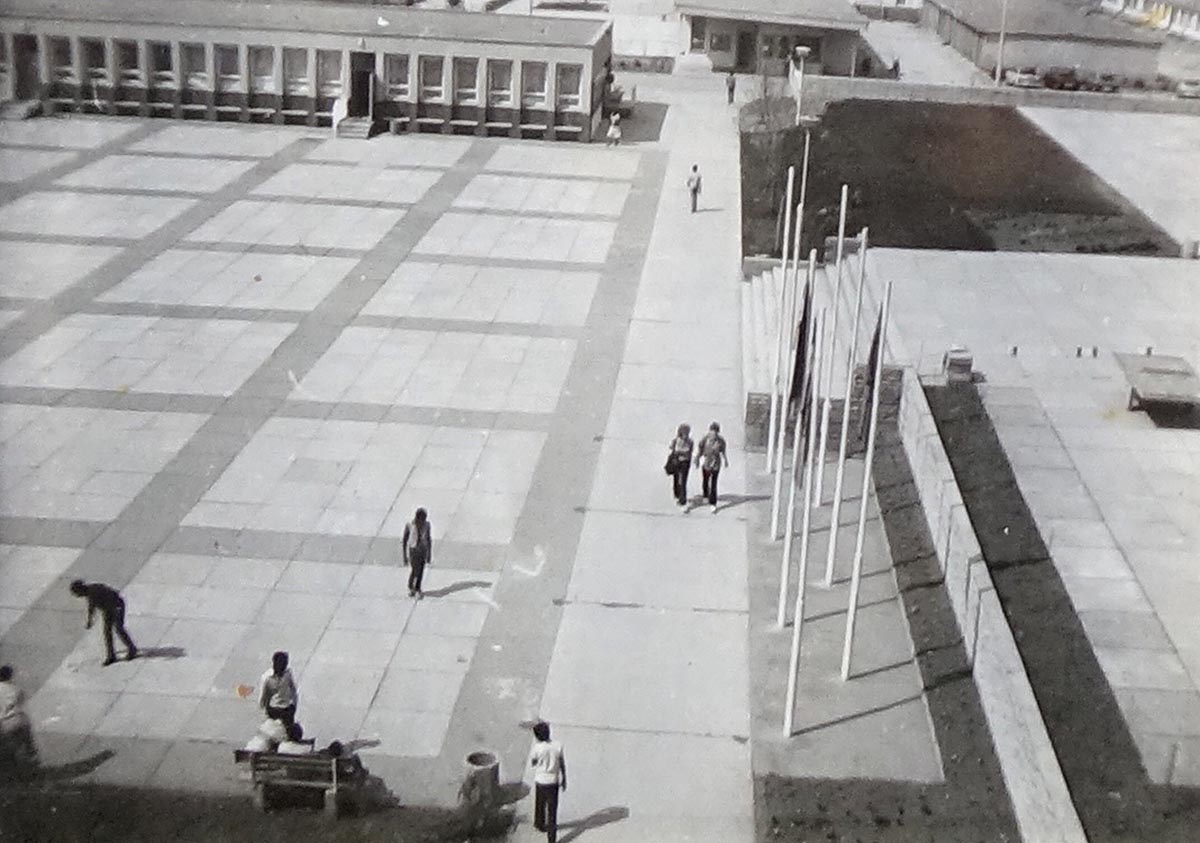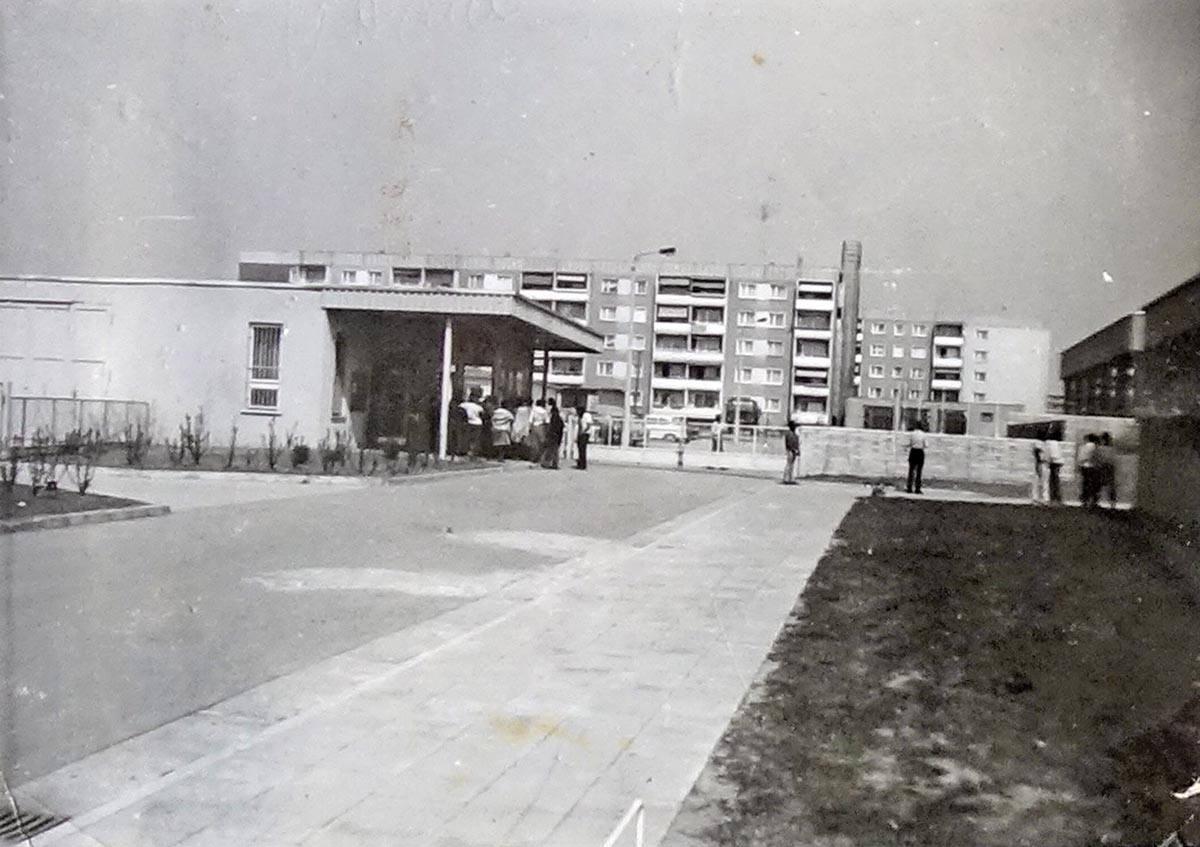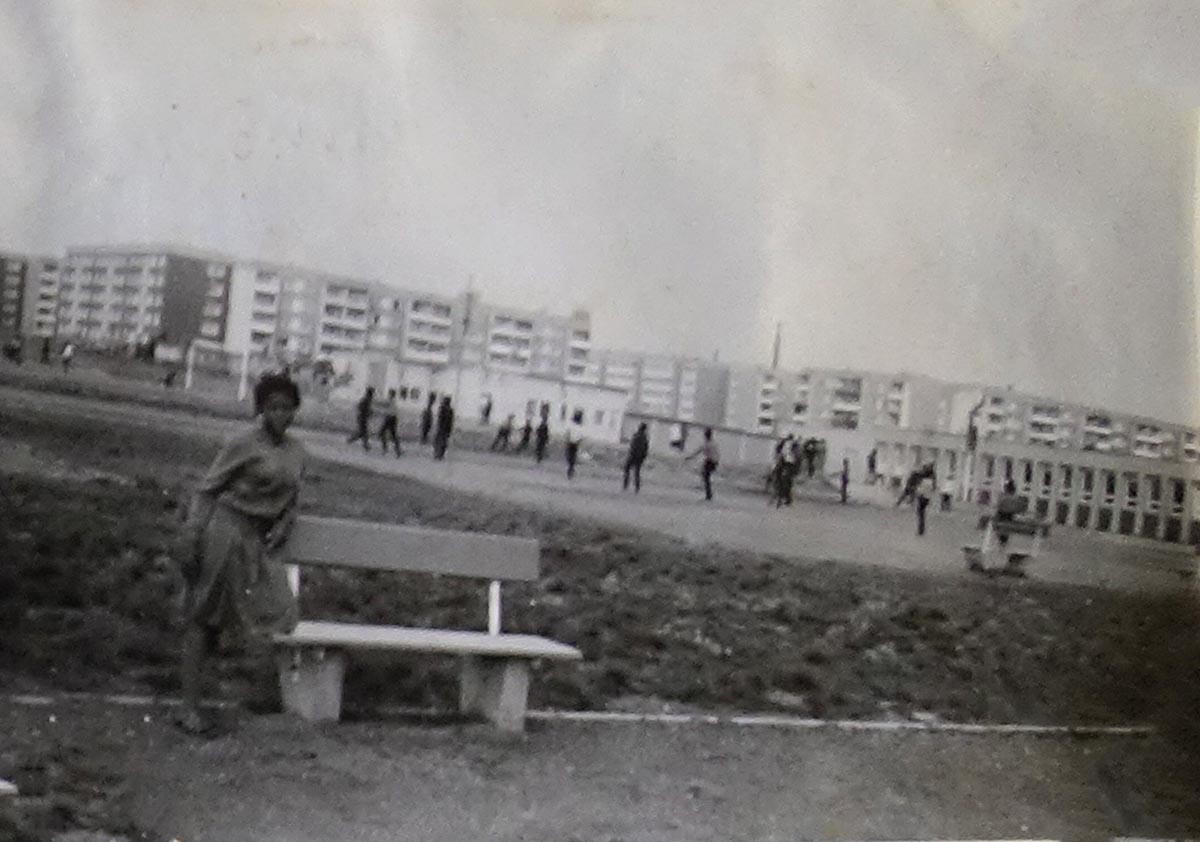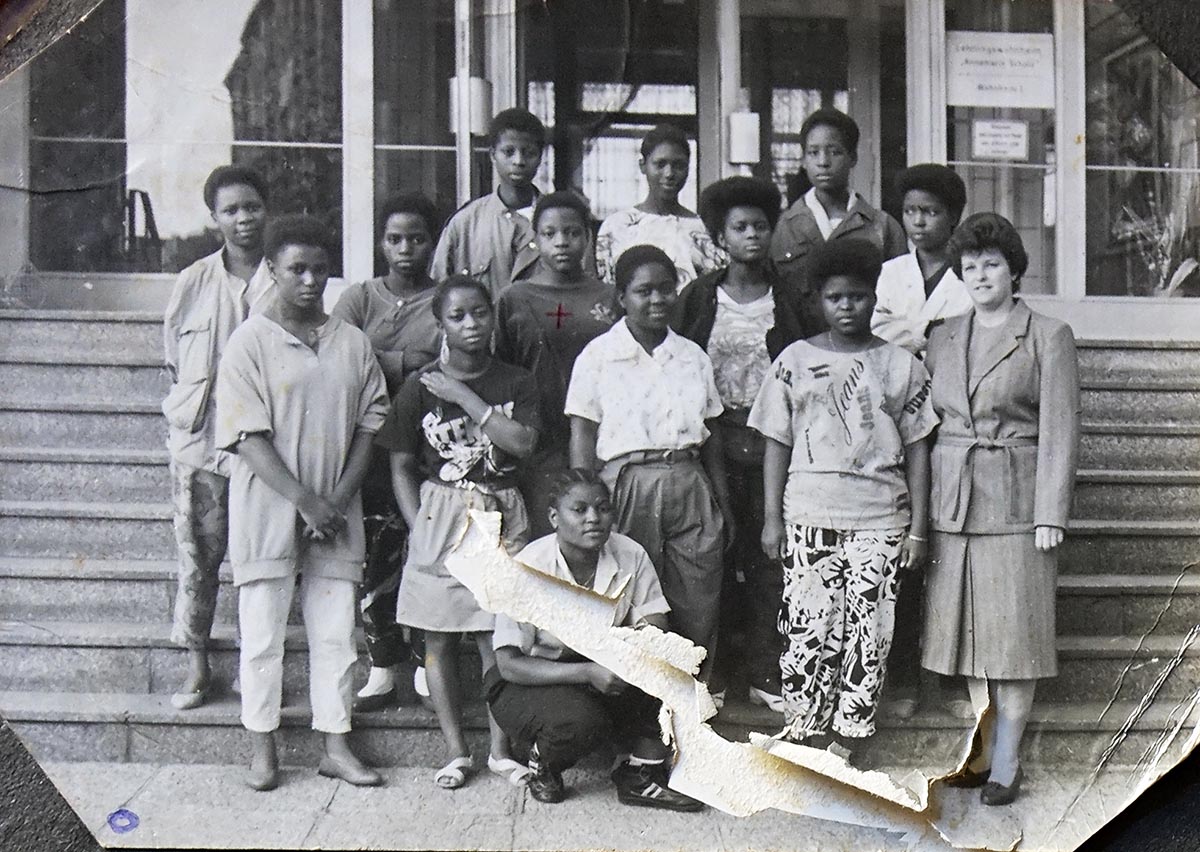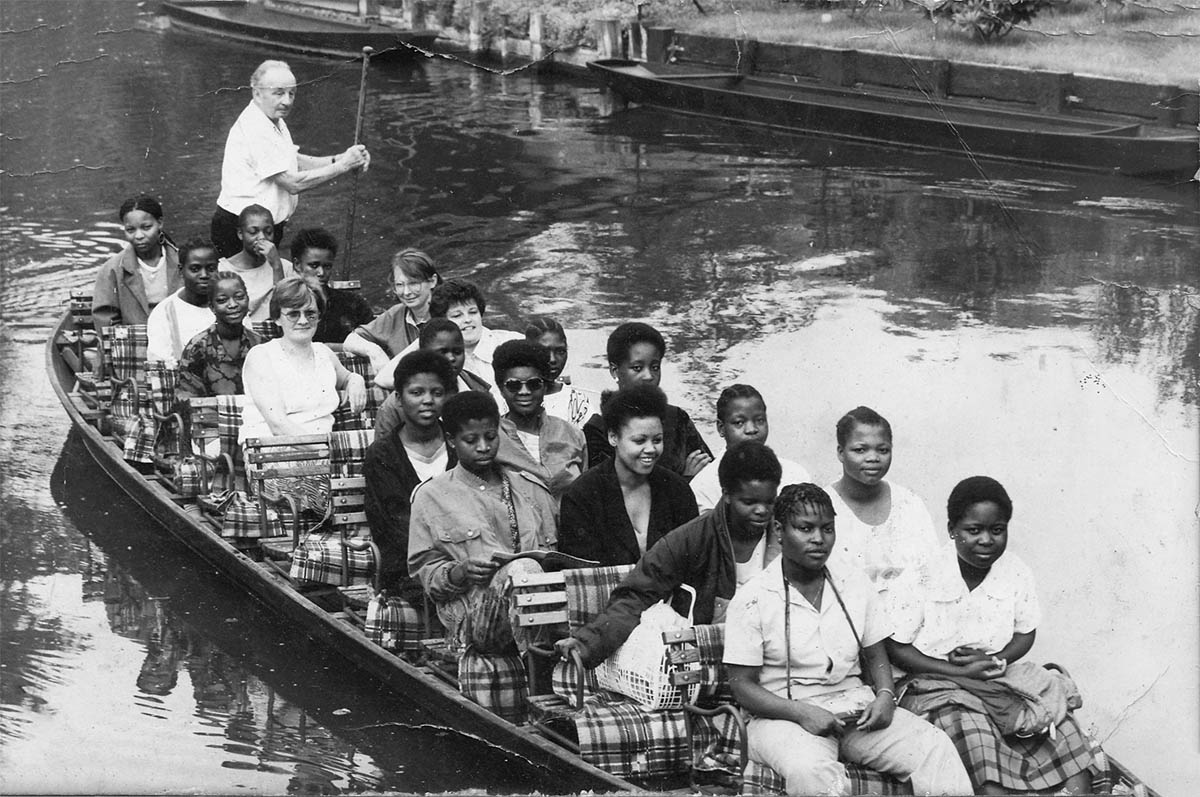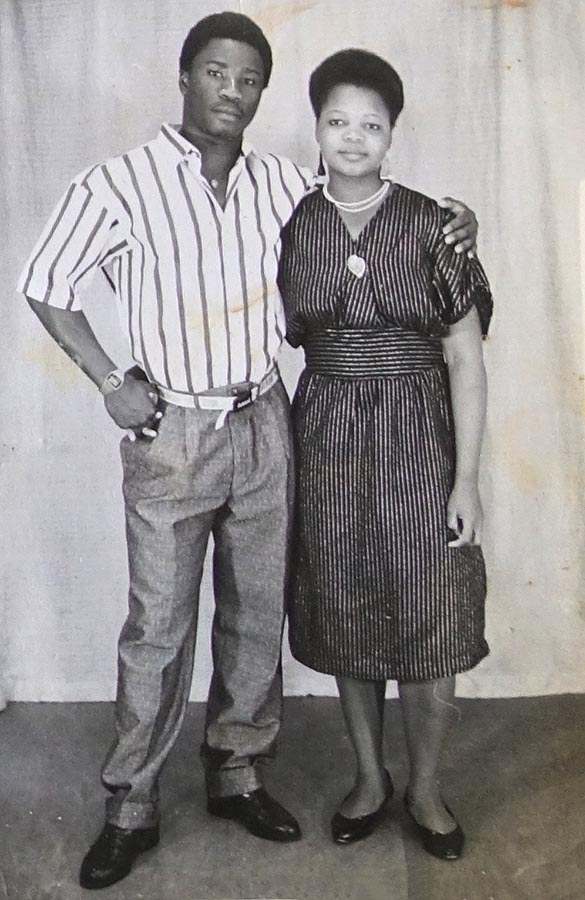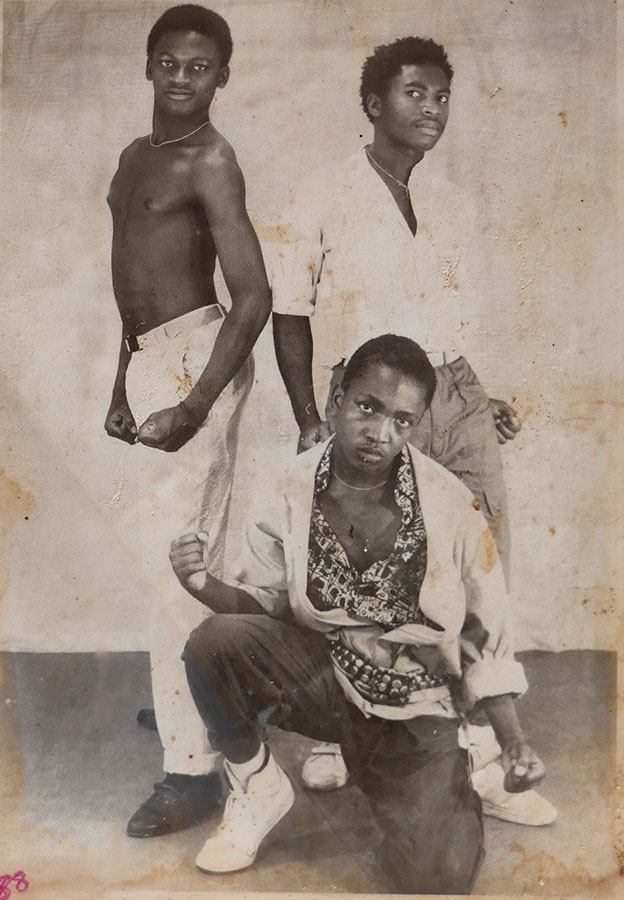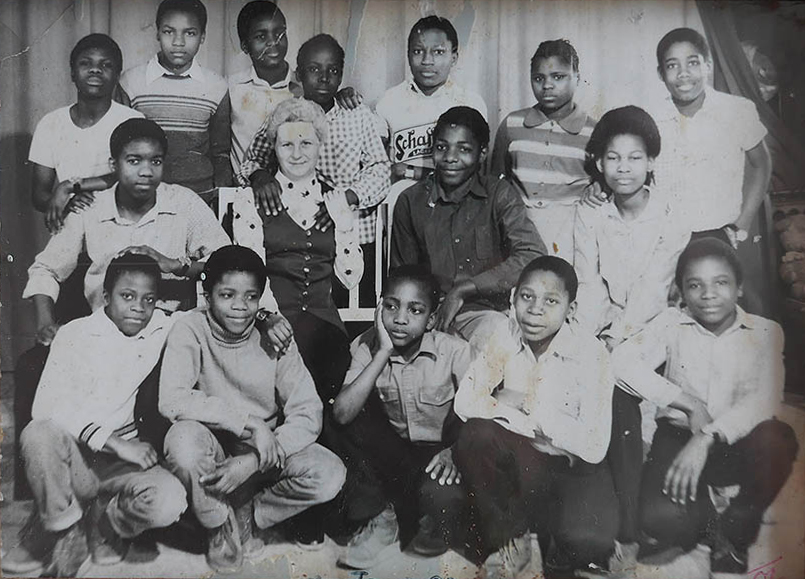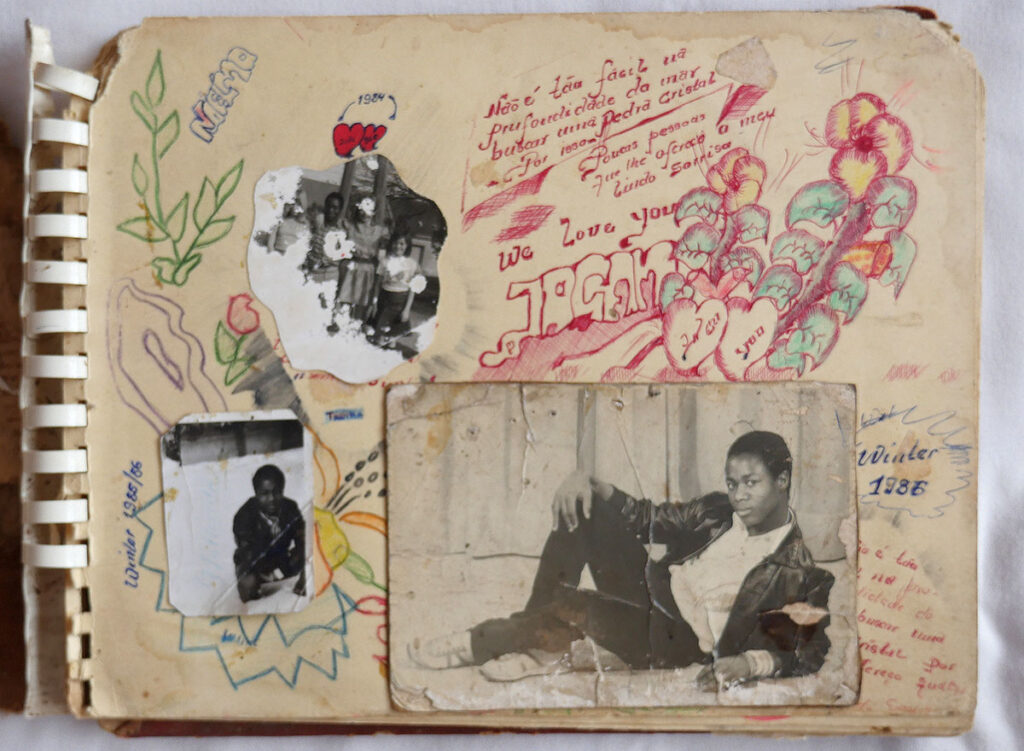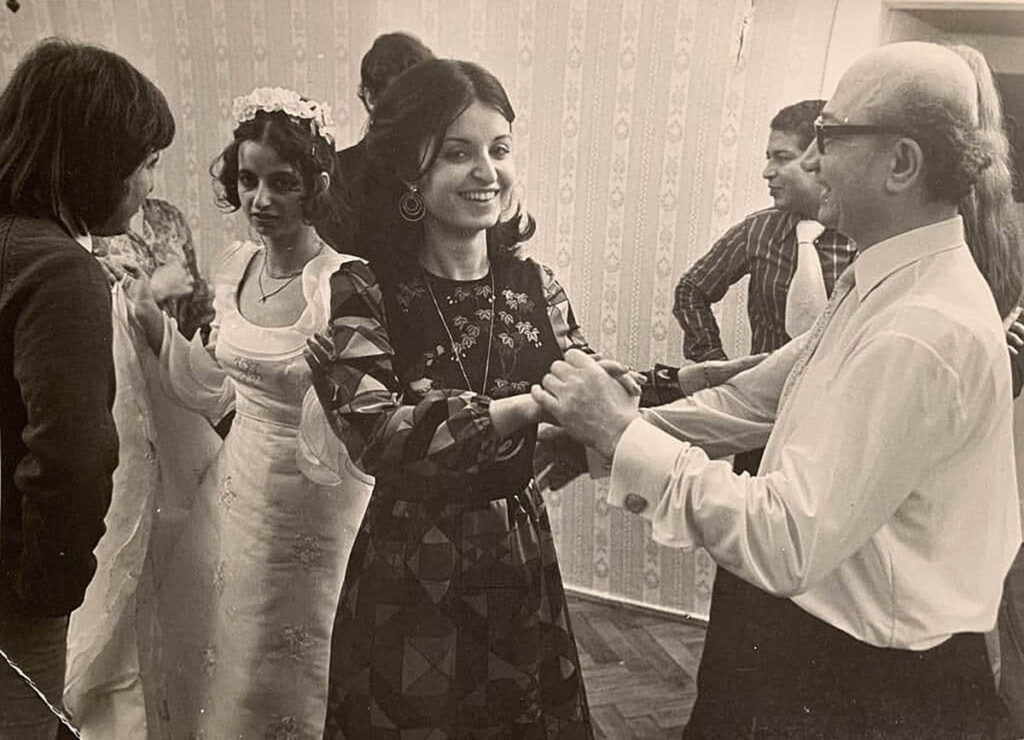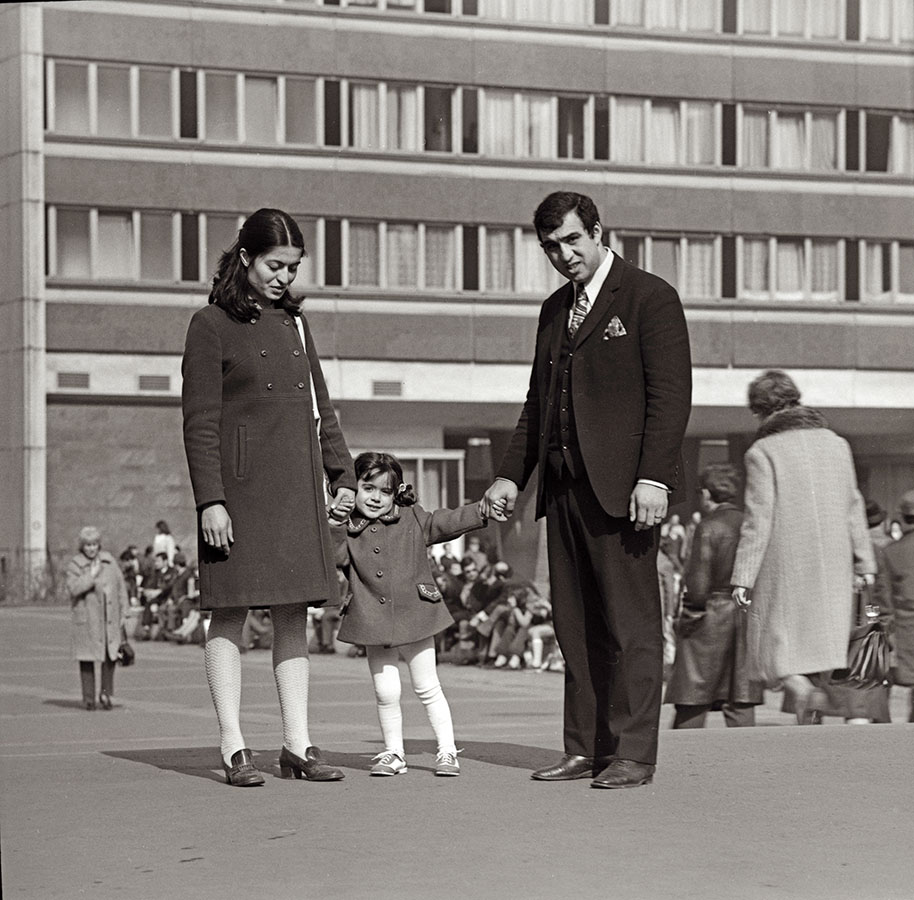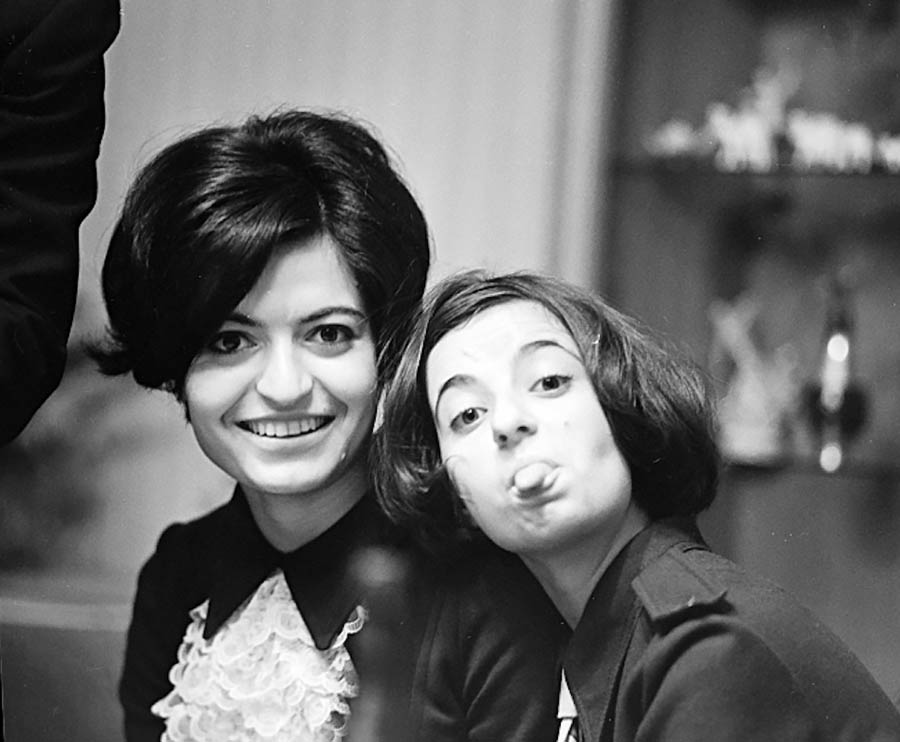Francisca Raposo
Francisca Raposo is twelve years old when she arrives in the GDR. She is one of nine hundred Mozambican children who are admitted to the School of Friendship (Schule der Freundschaft, SdF) in Staßfurt. The children are to stay in the GDR for six years in order to receive schooling and vocational training. All together they are accommodated in a school —including boarding —especially built for them.
A School of Friendship?
Francisca Raposo comes from a humble family in northeastern Mozambique. After her parents separated, she is sent to live with her aunt. The girl has to work a lot both in the fields and the house. Nonetheless she is a good student. With the support of her teachers, she is achieves to be selected for education in the GDR. The School of Friendship experiment is part of a state agreement signed in 1979 between the People’s Republic of Mozambique and the GDR.1
Many adult villagers are suspicious. Portuguese colonial rule is only a few years over. “They will make sardines out of you in Europe,” they say. But Francisca is glad for any opportunity to escape the precarious conditions at home.
I had no idea what the GDR was, what it looked like there, or how long the flight would take. But nevertheless, I agreed right away.
Francisca Raposo, 2022 in Berlin
School and family become one
German and Mozambican teachers and caregivers teach the children, and take care of them. The pedagogues also live in the boarding school. School and family are one. There are only supervised exchanges with German children. Right from the beginning the Mozambican children are photographed a lot. Press photographers appear at official events, there are television reports, and they themselves like going to the photo studio to have their portraits taken. Later, a photo club emerges at the school, and a studio is set up in the basement. Francisca sends photos and postcards to her sisters in Mozambique. In Staßfurt, they swap pictures with each other and create fanciful albums.
Francisca Raposo describes how her photo album emerged, and the significance it holds for her.
Having their pictures taken
In the afternoons the children have some spare time and are allowed to go into town. On the way there, they pass Karin Marzahn’s photo studio. “Every day, at 3 p.m. sharp, a group of Mozambican children would come and have their picture taken,” the photographer says. “They dressed up nicely and told me exactly how they wanted to be photographed. They enjoyed using props. A large Renaissance-style armchair, for example, was popular.” Getting photographed is not expensive. Popular, also among GDR youth, are friendship pictures: Portrait photos in 6 × 9 cm format, which are exchanged with each other and pasted into albums.
After her return to Mozambique, two photo albums are stolen from Francisca — an irretrievable loss. The pictures of her first years in Staßfurt are gone.
Siesta and supper
Although there are also Mozambican teachers in Staßfurt, everyday life and education are based on German customs and rules. Rest at noon must be strictly observed, in the evening there are sandwiches and rosehip tea, meals must be finished completely. Violations are punished with a ban on excursions or confinement to the room, Francisca explains. Sandman and the Olsen Gang feature in the evening TV program.
When the children turn into teenagers, they can no longer be so easily confined to this closed cosmos. Fashion and music play a major role, and magazines, including those from the West, are in high demand. The young people invest a lot of imagination and effort in their own outfits.
We always sewed and helped each other to sew.
Francisca Raposo, Berlin 2022
Francisca Raposo on homemade fashion and the envy of some fellow citizens.
Celebrity visitors
The School of Friendship is a popular project of the Ministers of Education Graça Machel (Mozambique) and Margot Honecker (GDR). They and other politicians use their visits to Staßfurt for public propaganda appearances. Likewise, the students have to line up on the roll call square for Egon Krenz, a member of the SED Politburo.
Francisca Raposo remembers a visit from some Egon, and sings the anthem of the School of Friendship.
No profession of choice
After four years, school is over and vocational training follows. The students have no say in this. Francisca Raposo is expected to learn a profession that, according to her teacher, is very fitting for a girl and her homeland: skilled garment worker. Francisca is disappointed. She had harbored dreams of becoming a pediatrician. “What was I going to tell my family? Seven years in the GDR to become a skilled garment worker?” she says.
Vocational training is given in plants outside the school. Francisca is sent to Cottbus. There she stays from Monday to Friday, returning to Staßfurt for the weekend. She hardly has any spare time.
No one ever talked to us about our future.
Francisca Raposo, Berlin 2022
Francisca Raposo recounts her forced departure and the harassment while serving in the army in Mozambique.
Return to Mozambique
The date for their departure is approaching, but no one at school talks to the young people about their future. A brutal civil war is raging in Mozambique. When Francisca arrives with her group back in Maputo in 1988, they are taken straight from the airport to a dormitory. They do not meet their families. Three days later, they are drafted into the army. The Mozambican authorities have set up a special company to train the adolescents returnees from the GDR. They are subjected to special harassment and harsh drill.
Ten months later, Francisca Raposo can [eventually] leave the army. Many things have disappeared from her German suitcases full with gifts for the family, her memories and photo albums. She had placed the things in the custody of a former teacher. Then she learns that contract workers are wanted in Germany. She applies and returns to the GDR in 1989, this time to Mittweida. But within three months only, she is dismissed by the plant and sent back to Mozambique.
The East German school diplomas are not accepted in Mozambique. Only few former students from Staßfurt find qualified work. Francisca Raposo struggles along with various jobs and graduates years later from university. Today she lives in Chimoio and runs a boarding school for trainees and students.
Credits:
Julia Oelkers conducted the interview in Berlin in 2022.
Text: Julia Oelkers
Research and research protocol photos: Julia Oelkers
Video edting concept: Julia Oelkers
